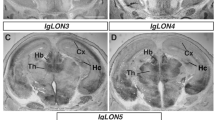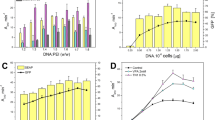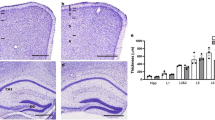Abstract
OBSERVATIONS of developmental events such as the sorting out of cells during organogenesis suggest that highly specific mechanisms exist for cells to migrate apart or aggregate together. Several assays of cell-to-cell binding using cells from developing tissues have provided probable in vitro analogues of these recognition mechanisms. When cells from various organs of the embryo are dissociated, re-aggregation occurs in a tissue-specific manner with, for example, liver cells binding preferentially to other liver cells and brain cells binding preferentially to other brain cells. A number of groups using different assay systems have agreed with this general finding1–4. Furthermore, our own work with chick embryonic neural retina cells has shown that proteolytic enzyme treatment of these cells removes structures which are necessary for specific cell-cell adhesion to occur5. The relevant ‘recognition’ moieties on the cell surface may be glycoproteins6–8. We have investigated cell–cell adhesion using embryonic tissues from two strains of mice, C57B1/10 and C3H, which differ from one another at the H–2 locus as well as at a number of minor H–loci.
This is a preview of subscription content, access via your institution
Access options
Subscribe to this journal
Receive 51 print issues and online access
$199.00 per year
only $3.90 per issue
Buy this article
- Purchase on Springer Link
- Instant access to full article PDF
Prices may be subject to local taxes which are calculated during checkout
Similar content being viewed by others
References
Moscona, A. Proc. natn. Acad. Sci. U.S.A. 43, 184 (1957).
Roth, S. Devl Biol. 18, 602 (1968).
Walther, B. T., Ohnan, R. & Roseman, S. Proc. natn. Acad. Sci. U.S.A. 70, 1569 (1973).
McGuire, E. J. & Burdick, C. L. J. Cell Biol. 68, 80 (1976).
McClay, D. R., Gooding, L. R. & Fransen, M. F. J. Cell Biol. 75, 56 (1977).
Balsamo, J. & Lilien, J. Proc. natn. Acad. Sci. U.S.A. 71, 727 (1974).
Hausman, R. E. & Moscona, A. A. Proc. natn. Acad. Sci. U.S.A. 72, 916 (1975).
Rutishauser, U., Thiery, J. P., Brackenbury, R., Sela, B. & Edelman, G. M. Proc. natn. Acad. Sci. U.S.A. 73, 577 (1976).
Moscona, A. A. in Cells and Tissues in Culture (ed. Willmer, E. N.) 489–529 (Academic, New York, 1965).
Zinkernagel, R. M. & Doherty, P. C. Nature 251, 547 (1974).
McClay, D. R. & Baker, S. R. Devl Biol. 43, 109 (1975).
McClay, D. R. & Hausman, R. E. Devl Biol. 47, 454 (1975).
McClay, D. R., Chambers, A. F. & Warren, R. E. Devl Biol. 56, 343 (1977).
Roth, S. & Weston, J. A. Proc. natn. Acad. Sci. U.S.A. 58, 974 (1967).
Staato, J. Cancer Res. 36, 4333 (1976).
Author information
Authors and Affiliations
Rights and permissions
About this article
Cite this article
MCCLAY, D., GOODING, L. Involvement of histocompatibility antigens in embryonic cell recognition events. Nature 274, 367–368 (1978). https://doi.org/10.1038/274367a0
Received:
Accepted:
Issue Date:
DOI: https://doi.org/10.1038/274367a0
Comments
By submitting a comment you agree to abide by our Terms and Community Guidelines. If you find something abusive or that does not comply with our terms or guidelines please flag it as inappropriate.



